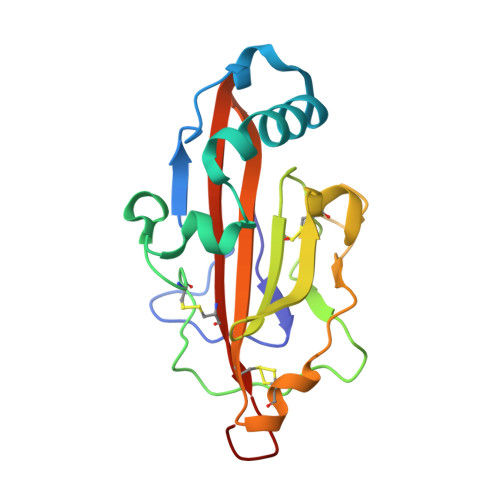Secreted pectin monooxygenases drive plant infection by pathogenic oomycetes.
Sabbadin, F., Urresti, S., Henrissat, B., Avrova, A.O., Welsh, L.R.J., Lindley, P.J., Csukai, M., Squires, J.N., Walton, P.H., Davies, G.J., Bruce, N.C., Whisson, S.C., McQueen-Mason, S.J.(2021) Science 373: 774-779
- PubMed: 34385392
- DOI: https://doi.org/10.1126/science.abj1342
- Primary Citation of Related Structures:
6Z5Y - PubMed Abstract:
The oomycete Phytophthora infestans is a damaging crop pathogen and a model organism to study plant-pathogen interactions. We report the discovery of a family of copper-dependent lytic polysaccharide monooxygenases (LPMOs) in plant pathogenic oomycetes and its role in plant infection by P. infestans We show that LPMO-encoding genes are up-regulated early during infection and that the secreted enzymes oxidatively cleave the backbone of pectin, a charged polysaccharide in the plant cell wall. The crystal structure of the most abundant of these LPMOs sheds light on its ability to recognize and degrade pectin, and silencing the encoding gene in P. infestans inhibits infection of potato, indicating a role in host penetration. The identification of LPMOs as virulence factors in pathogenic oomycetes opens up opportunities in crop protection and food security.
Organizational Affiliation:
Centre for Novel Agricultural Products, Department of Biology, University of York, York YO10 5DD, UK. federico.sabbadin@york.ac.uk simon.mcqueenmason@york.ac.uk.
















